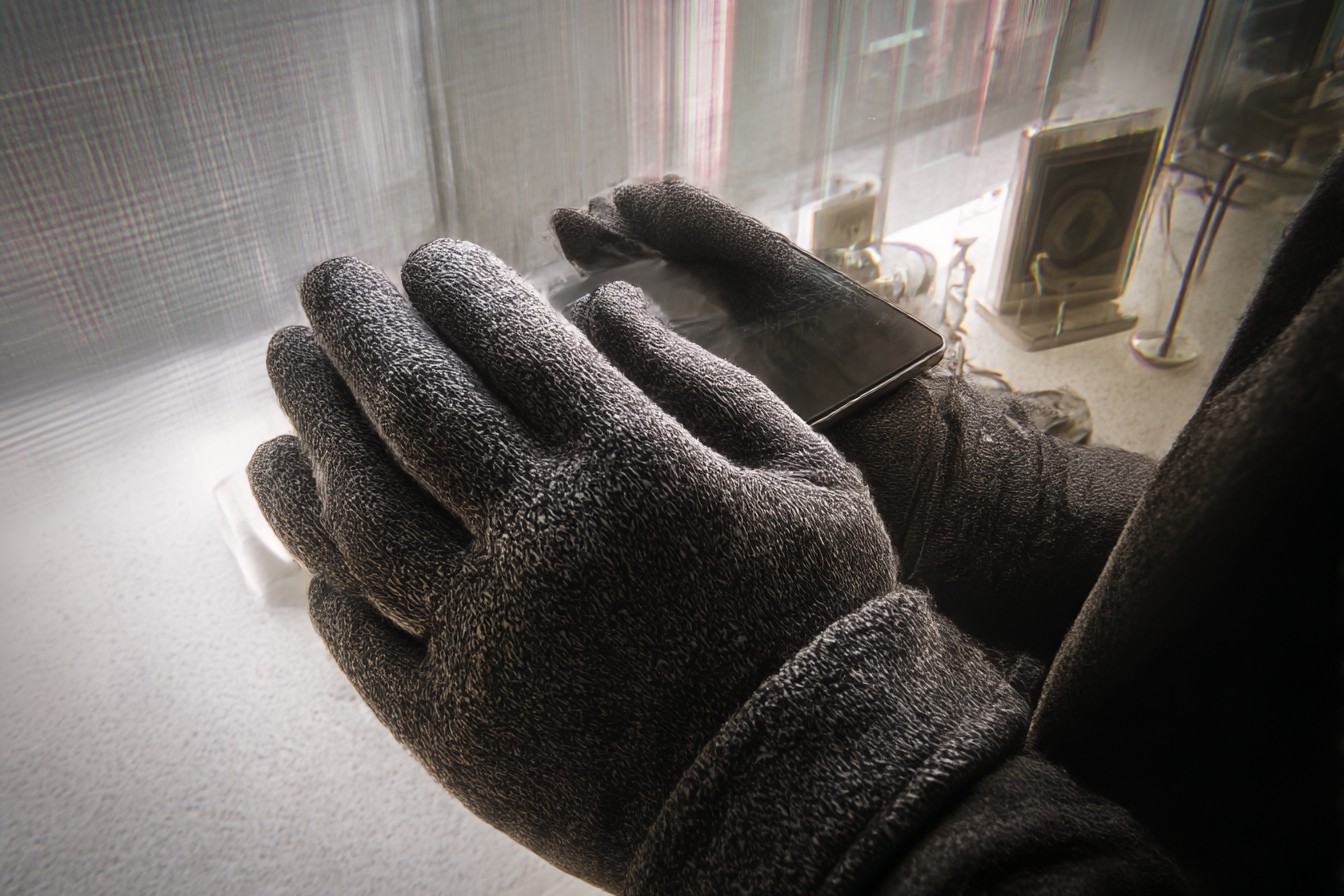My internet stopped working last Tuesday. You would assume that it would have an equally simple solution, how naive I was.
What should have been a simple fix turned into, what felt like an, odyssey through the unique misery that is contemporary customer service – strikingly similar to what I’m sure Dante endured in his The Divine Comedy. And trust me, I would not wish that experience on my worst enemy.
I made the catastrophic mistake of contacting my internet service provider directly. The moment that robotic, yet over-friendly voice started to address me, I knew it was going to be a long day.
“MegaConnect is so excited that you have reached out! Your satisfaction is our number one concern! Kindly make note that our options have changed (once again)!”
We all know they state that for the sake of stating something. Menu options have “recently changed.” For the past eight years that I’ve been using the same business, every time I call, the menu choices have “recently changed”.
They really seem to believe that we all have goldfish-like memories. Or they enjoy the notion of forcing us to listen to the menu repeatedly before we are granted a chance to escape.
I pressed 1 for English thinking to myself that will be the first hurdle we cross even in the year 2025. Then came the real challenge: If you want to discuss about bills, press 2. For the techie stuff, press 3.
If you would like to discuss the new services, press 4. To listen to a long description of the options which you’ll then be asked to choose from, press 5. To be transfered to another computerized system that will ask you for the same information you just finished entering, press 6.
I pressed with perhaps a bit more force than my phone deserved. “I Note that you have selected technical support,” she said, sounding condescendingly delighted. “So that I can give you better assistance, please input or say the twelve-digit account number followed by the pound sign.”
Yes, account number. Exactly. Like my driver’s licence. Or my passport.
Or my birth certificate, along with my Social Security card. To sum it up, not really, and certainly not for any logical reason.
My belongings should be organized, But the problem is I still might not have it during the period when I need it the most. Not to mention, even if I happen to locate it prematurely, encountering it under rigid standards during an unexpected hunt guarantees no protection, right?
After I located and entered my account number, a prompt followed that started querying my phone number, postal address, mother’s last name, and even my first pet’s name. Had technology allowed it at the time, the system may have also requested a DNA sample. ‘We cherish the details you have shared. For us to help you better and guide the call, kindly tell us what is the nature of your call briefly,’ the robot narrated.
‘The internet is down,” Encapsulated, I stated.
‘That would mean you would like to die with a sense of having alternative billing arrangements.’ What I think you uttered.
‘No,’
To which I replied deciding to retract my statement having somewhat aligned with the intent of the question.
‘My apologies. That is difficult to comprehend. Kindly answer, ‘yes’ or, more appropriately, ‘no’.
“I’ll put you through to the invoicing team.”
Up until now, I may have offended some people by using phrases that could make a sailor wince. The system, completely unaffected by my lexicon, brightly told me an operator might answer my call for quality assurance or training purposes. I truly hope that it does.
I do wonder if some poor underappreciated quality assurance personnel had to endure listening to my customer service diatribe for a good 15 minutes. And may that have entertained them. After so many repetitive zero button presses, where I thought the device would topple over, I actually found myself in a queue, finally able to converse with a human representative.
An automated voice informed me that the waiting time to speak with one of their representatives is around forty-seven minutes and is ‘extremely important’ for the customer. This is an episode of Modern Family. That’s a short run on the treadmill. That’s more than enough time to prepare some cookies.
Instead, I spent it listening to a tinny rendition of how my call was incredibly crucial accompanied by “The Girl from Ipanema” on loop every thirty seconds. The wait turned into multiple levels of customer service grief: disbelief, irritation, negotiation (And the five-minute promises of changing providers), depression, and a peculiar acceptance of being a customer who simply could not get a ‘live’ person on the other end. My morning chores to do list involved catching up with incomplete tasks to the sound of ill attempts at Philip Glass.
Miraculously, a voice box appeared from nowhere, “My name is Jason, and thank you for calling MegaConnect, what can I do for you today.”
A human. A jaw dropping exquisite human who possessed all resources needed to help me solve my problem. It was overwhelming, there was a profound sense of relief ready to burst in tears immediately.
“Hello, Jason,” I said, attempting to conceal the urgency in my tone. “My internet is not working.”
“He, on the other hand, should have no problems with that,” Jason offered. “First, can I kindly request your account number?”
The automated system had already prompted me to enter the account number.
That system should have validated the account number by now and, as would any reasonable person assume, that number would most certainly be flashing on Jason’s screen. That accout number.
I once again provided him with all the information I had already given to the robotic system, including all of the instructions given to him by me. Jason thanked me and then tried to guide me through the basic troubleshooting process: unplug router, wait ten seconds, and then plug it back in—a process, I might add, I had already done prior to my customer service call. Because, contrary to what some customer service systems seem to think, many adults attempt the obvious solutions first.
“Hmm,” Jason said on our third attempt to reactivate my internet connection. “I think we might have an outage in your area. I’ll transfer you to technical support.”
The word I hate. The moment I was about to stage a protest and practically begging Jason not to leave me to this life devoid of meaning, in my head I was facing the Ipanema girl all over again, “The Girl from Ipanema” playing again and again.
In Technical support, Patricia picked the line after approximately 17 minutes. I went through the whole story yet again and provided her with my account number for the third time as we both waited for her to “pull up my information.”
“Right now, you can lift the blockade, because I understand perfectly what the problem is.”
“Service issues in your area, we’ll resolve that in around twenty-four to forty eight hours.”
Stagnant service. That should have been told to me by the automated system the instant I placed my address.
That would’ve saved me one and a half hours along with a couple of expletives. Because it was not done this way, two paragraphs seem pointless. Patricia questioned, “Could I help you with anything else today?”
What could be said? That there exists an inclination towards wanting back the 90 minutes devoted to customer service, as if the customer service gods would somehow oblige? An outlook in which companies were wished to invest just as heavily into real human service as they do with all the automated machinery designed to eliminate it?
An inconvenient reminder of when needing to reach a business meant the possibility of talking to an actual human who was helpful came to mind. Instead, I turned down the opportunity politely because, in this case, woman etiquette dictated differently. With the call completed, I found myself in a secluded room reflecting on the level of communication technology allows in this era.
I’m able to see a person who lives across the world in real-time, and even A.I. can write up some automated essays—along with some robots that are apparently roaming the streets. Technology is effortlessly blending with art, but for some reason, none of these advancements seem to match the level of progress that has been made in customer service. Why in the world is it so complicated to find a human being on the other side of the line after going through a myriad of options and wasting countless minutes?
Blocked phone lines are just one of the many tactics used by a corporation to make them appear more available than they really are, and such is the case with Turkish Airlines. Such enterprises will brand themselves with tags like incredibly advanced and undoubtedly effective” and “good customer service”, but these systems are far more complicated than they profess to be. They misroute a plethora of customers to the wrong assistance departments leading to mass anger and elevated call drop rates, which are the opposite of their intended goals.
(I’m not proud to admit that I’ve hung up on these systems far more times than I can count.) In any case, when you finally manage to get through to a person, it’s very likely that the person you get will not satisfy your expectaions. Sometimes no conversation at all is better than one that does not meet your expectations. A slow battle drains your energy.
Call centers bet that a large portion of callers will give up midway rather than finishing the entire maze. And let’s be real—all of us at some point have ditched a customer service call mid-way because we knew we didn’t have hours to burn.
How many legitimate concerns are left unattended because the procedure to address them is too complicated? It’s worrisome how these types of systems manage to shift our hopes to be a bare minimum. In fact, our gratitude is so deep that as long as we reach a human, we are thankful—even if they are unable to offer actual assistance.
We shower that individual with gratitude for a service that’s practically below minimum pay and appreciate their barest effort in employment, which is to hear out the individuals whose lives, dilemmas and struggles cannot be reduced into a neat string of zeros and ones. I remember the days when a company’s call center actually had people answer calls—rather than have robotic systems doing it. I remember being able to narrate a problem to someone at the other end of the line who I believed, with the degree of confidence bordering on hope, understood the nuances of the my situation.
I remember when customer support actually existed and when the phrase customer service did not become redundant where the service was placed after the phrase. The following day, my internet was conveniently restored, but again, this was done without any accompanying reasoning or acknowledgment of their prior mistake. I thought about giving MegaConnect a call just to confirm that they’d actually sorted out the issue and I no longer had any internet access, but the thought of enduring the agony of their phone system made the idea too much to bear.
Some stuff really gets under your skin. If you ever find yourself in endless customer service purgatory, mashing numbers in a desperate bid to reach an actual person, it’s not just you. We’re stuck with you too, listening to the dreadful hold music, reciting the same information over and over, and experiencing the irony of how speaking with someone has become easier to do in the past—free from these so-called technological “wonders.”
Do any of these words bring a smile to your face? Hopefully! Now, if you are fortunate enough to talk to a flesh-and-blood human being, remember to be civil.
This irrelevant automated maze deceivingly referred to as “customer service” is not their doing. They are attempting to provide as any reasonable public servant would, “helping you recover your daily life,” within the boundaries of a bizarre, terrible, and ostensibly extravagant system designed to keep you and them apart. If there is no other option, make them endure this system like the rest of us, then we should ensure they are properly compensated.
About myself personally, I have formulated a new strategy on how to deal with customer service wait times. I set a particular time for them, put the phone on speaker, and think of the queue as an exercise in calmness. I know that somehow, my mental health is secure because I let myself go, not because I fight.
Or I send letters with the fiercest of words. With actual stamps. Sent through the actual post office.
Sometimes, the best form of protest against the culture of convenience we have today is to, with good intention, unapologetically embrace the past. With this, I have to apologize but my cable is about to fully give out. On top of that, I need to mentally prep before embarking on what is essentially an odyssey through customer service—what feels like a very personalized rendition of the nine layers of customer service hell.
So until then, make sure to be there for me in spirit, okay?




